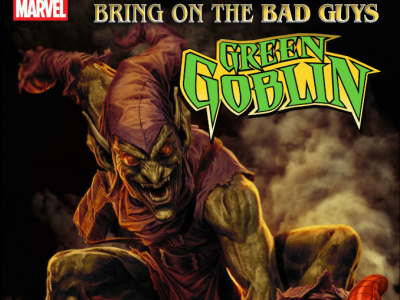Marvel released its Q3 report last week, and its publishing and toy results continued to improve vs. Q2, although licensing was somewhat weaker. Over-all, Marvel lost around $900,000 on operations, and lost $14.7 million before an extraordinary gain of $13.6 million that brought the bottom line net (before its preferred dividend, which will be paid in stock) to a $1.1 million loss. EBITDA was $7.2 million, around the same as what it was in Q2. EBITDA declined from the year-ago period, primarily due to the downsizing of the toy business. Sales were around $43 million for the quarter. Sales in the publishing division were $12.8 million, up 12% vs. the year-ago period, and 15% higher than Q2.
The most interesting events were all in the balance sheet this quarter. Cash on hand dropped to $14.8 million from $18.2 million at the end of Q2, a matter of some concern for a company with no bank financing (see 'Marvel Cash-flow Positive in Q2') and ongoing losses. The good news for Marvel was that it was able to wipe out around $50 million in secured debt through a couple of transactions that reduced its senior debt to under $200 million.
The first transaction was a swap of $39 million of its senior notes for $20 million in licensing fees from Hong Kong-based Toy Biz Worldwide, Ltd., the entity that is now licensing Marvel characters for the production of toys. Most of that $20 million represented a prepayment of licensing fees yet to be incurred. As we've previously reported, Toy Biz Worldwide is an entity organized by parties that have been associated with Marvel's toy manufacturing in the past. Not clear is whether the notes traded for licensing fees were part of Marvel's $250 million 1999 debt offering, or whether they were purchased by Toy Biz Worldwide from a holder of the notes at a subsequent time. Regardless, this represents a huge discount from the face value of the notes, and produced an extraordinary gain for Marvel of $10.6 million, net of write-offs of deferred financing costs and income taxes. Also not clear is whether the discount from the face value was because of uncertainty about whether Marvel will be able to repay its debt, or was 'bundled' into the deal with other factors, including the licensing rate on Marvel's toys, or both.
At around the same time, Marvel also redeemed another $12.2 million of its senior notes for $7 million, again representing over a 40% discount from the face value of the notes. While the owner of those notes wasn't disclosed, the timing of the transaction suggests that the owner was also connected to Toy Biz Worldwide. This produced another extraordinary gain of $3 million, net of similar offsets.
Another notable balance sheet change was the increase in Marvel's current liabilities (due in under one year) by $20 million, from around $49 million to around $69 million. Current liabilities include such accounts as accounts payable, accrued expenses, and deferred revenue, all of which jumped substantially. Since sales were not growing during this period, the increase in this form of debt suggests that Marvel is either being granted new trade credit or taking longer to pay its bills.







